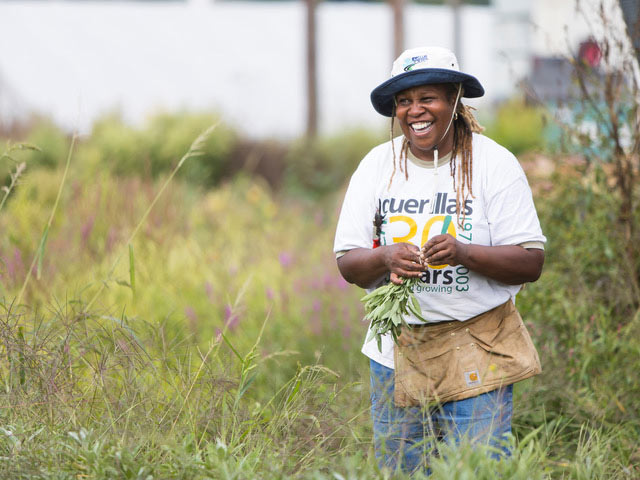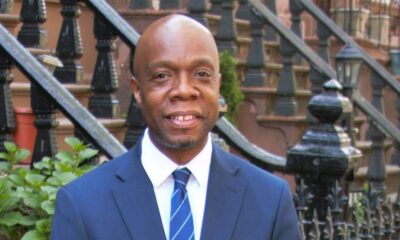Environment
Ancestral Roots

Ancestral Roots
by Fern Gillespie
On the heels of the Biden-Harris White House Conference on Hunger Nutrition & Health held this week, issues ranging from Black farmer survival to urban gardening will be explored at Reunion, Recovery and Resilience: Preserving Black Land and Reclaiming Self-Determination, the 10th annual Black Urban Growers Conference (BUGs) at Georgia State University in Atlanta, October 14-16.
“With all our conferences, it’s the reconnection to our ancestral lineage; our past, our history, that is the winding thread,” explained New York-based Karen Washington, a co-founder of BUGs, to Our Time Press. “The common denominator is for us to look at ourselves and to make sure we continue to have those connections.”
Key speakers at this year’s conference include: Dr. Gail Myers, cultural anthropologist, filmmaker and co-founder of Farms to Grow Inc.; Stephen Satterfield, host of Netflix’s High on the Hog and founder of Whetstone Magazine; Matthew Raiford, a James Beard nominated chef and farmer, author of Bress and Nyam and has Gillard Farm located in Brunswick, GA; Shirley Sherrod, an advocate and global thought leader on U.S. agriculture policy and its impact on Black farmers and the Black community and member of Biden Administration’s USDA Equity Commission; Dr. Jessica B. Harris, author of High on the Hog and culinary historian, college professor, cookbook author and journalist; Natalie Baszile author of the novel turned OWN’s television series, Queen Sugar and the recent book We Are Each Other’s Harvest.
The conference will explore the southern roots of Black agriculture and its connection and influence on today’s movements to black food sovereignty. It will feature chefs, food product makers, herbalists, nutritionists, policymakers, educators, activists, and organizations from around the country. The conference will also provide hands-on, skill-building workshops on sustainable agriculture education including soil health, financial literacy, seed saving, and other related topics.
Nationally, 45,508 Black farmers (1.3% of all farmers) were counted in the 2017 agriculture census, making up 0.5% of the country’s farmlands. “The major problem for Black farmers is accessing the land and accessing the resources. Black farmers own less than 2% of land in America. The statistics in New York State, the average white farmer makes $47,000 a year. A Black farmer makes minus $900 a year.”
Since 1985, Washington has been a frontline environmental justice and urban garden advocate. She works with Bronx neighborhoods to turn empty lots into community gardens. A veteran garden protection and preservation advocate she’s a former president of the New York City Community Garden Coalition, co-founder of the La Familia Verde Garden Coalition and City Farms Market, and board member of the New York Botanical Gardens, Soul Fire Farm, and the Black Farmer Fund. Since retiring from physical therapy in 2014, she has been a co-owner and organic grower at Rise & Root Farm in Chester, New York.
“Urban farming is important because of its relationship to food and health. And in these spaces of color, there’s a huge problem when it comes to access to food and health. Instead of being on the bread line or on the food line, we want to control food that we put in our bodies,” she said. “It’s not about feeding the masses, it’s about having that connection to land and history. Having that connection to where food comes from.”
Sections of the conference will be online. For more information on BUGs Conference contact blackurbangrowers.org











